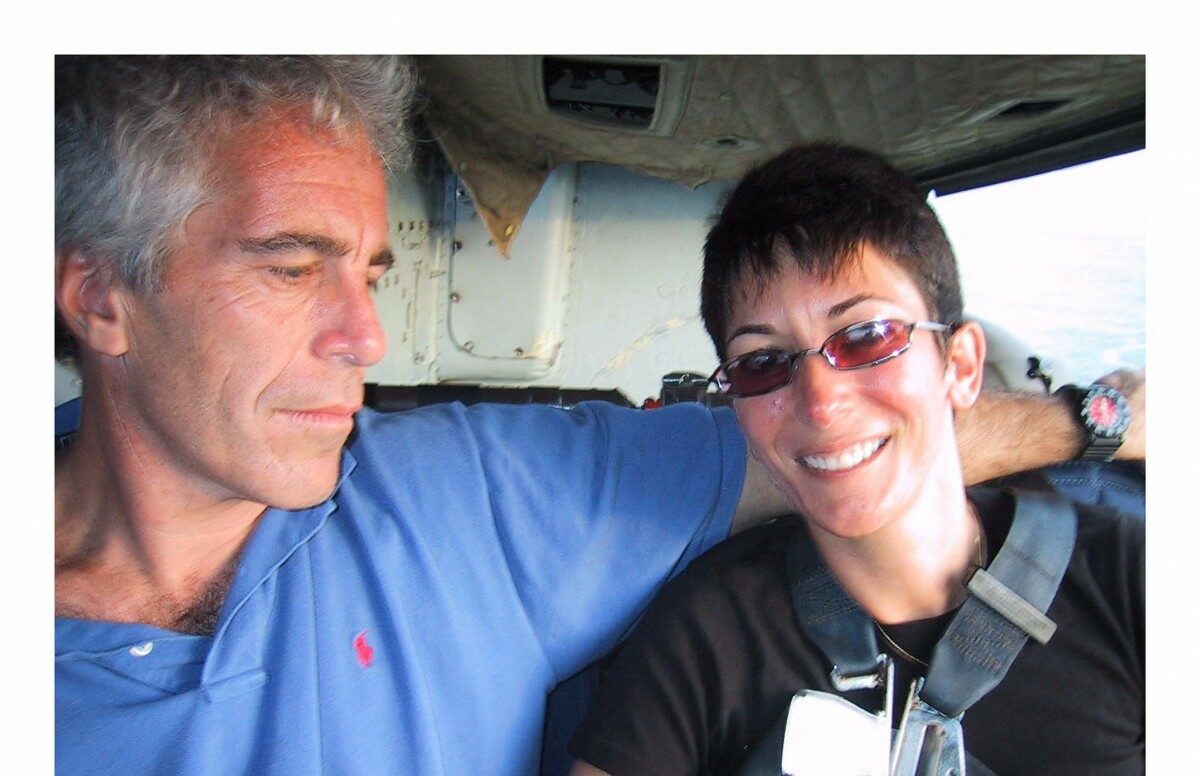DUBAI, UAE — Recently, thousands of pages of court documents relating to the late pedophile Jeffrey Epstein were made public. This release followed an order by US Judge Loretta Preska in a lawsuit brought by Virginia Giuffre against Ghislaine Maxwell.
The documents name scores of prominent figures, including Prince Andrew, Bill Clinton, Donald Trump, Richard Branson, and Victoria’s Secret boss Les Wexner.
Following the release of these documents, the scandal quickly became the centerpiece of social media. While the issue is not new, it has piqued people’s interest due to the inclusion of well-known names and figures from the world’s elite. Millions have turned to platforms like Twitter to spin narratives, demand accountability, and share trauma.

The initial waves of social media engagement were dominated by raw anger and disbelief. Viral hashtags like #EpsteinDidntKillHimself and #JusticeForSurvivors trended globally, fueled by graphic accounts of Epstein’s alleged sex trafficking ring and the powerful figures implicated in his network. Activists and everyday users alike joined in condemning, demanding accountability and transparency from the institutions that allegedly enabled Epstein’s crimes.
This report highlights some of the comments on social media that expressed annoyance with this topic and questioned the extent of involvement of these named figures. For instance, one user described “Hollywood as a Freemasonry castle. Science fiction and coincidence do not exist. It’s all true, it’s happening in secret, and it’ll soon be out in the open, paving the way for us and nothing more.”
هوليود عباره عن قلعة للماسونيه
— ℓẩм̃̾éésツ (@lameeslele) January 11, 2024
مافيش حاجه اسمها خيال علمي ولاصدفه
كله حقيقي بيحصل في الخفاء وقريبا هايكون في العلن بيمهدونا مش أكتر
وديزني عباره عن ترويج للمثليه بتكرار صور والوان معينه لاعتياد الطفل عليها زى قوس قزح فيكبر يلاقيهم حطوه شعار للمثليه فيتقبلهم.#جيفري_إبستاين pic.twitter.com/KtgFLiCQNM
Another post debated Trump’s involvement in the scandal since his name was mentioned but without specific details, and some defended him.
Trump says he was never on Epstein's plane. Was this supposed to be Trump's living room? pic.twitter.com/cywHEwT7io
— Kevin J McCarthy (@KevinJMcCarthy8) January 12, 2024
The adapted text maintains the original intent and information of the copy, focusing on the widespread social media reaction to the release of court documents related to Jeffrey Epstein. It incorporates American English spelling and ensures clarity in the narrative. The discussion about the involvement of various high-profile individuals reflects the public’s interest and the diverse perspectives shared on social media platforms.
Several posts shared a video of comedian Ricky Gervais at the Golden Globes two years ago, where he dropped the Hollywood façade and mocked celebrities. He touched on the case of Jeffrey Epstein and said to the audience: “I know he is your friend.”
سلسلة #جيفري_إبستاين (٦)
— سيف الحموي (@saifalnasr0) January 6, 2024
🔺مقطع عاد للظهور وانتشربكثافةمع قضية #جيفري_إبستاين للممثل الكوميدي(ريكي غريفيز)في حفل الغولدن غلو قبل عامين حيث قام بأسقاط الاقنعة المزيفة لهوليوود والسخريةمن المشاهير وتطرق لقضية #جيفري_إبستين وقال للحضور:
>>>اعلم انه صديقكم<<<
pic.twitter.com/loAVrO4I24
Bill Gates was also targeted by the public, with many sharing a previous television interview where he was asked about his meeting with Epstein ten years ago. Gates expressed disappointment about having dinner with Epstein, stating, “He told me that he had contacts in the medical field, but the meetings did not result in anything, which I regret.
Gates expressed disappointment about having dinner with Epstein, stating, “He told me that he had contacts in the medical field, but the meetings did not result in anything, which I regret. Attending those meetings was a mistake,” he said.
المذيعة: اجتمعت عدة مرات مع جيفري إبستين قبل 10 سنوات وكان وقتها مدان بقضايا متعلقة مع القاصرات.
— إياد الحمود (@Eyaaaad) January 4, 2024
بيل غيتس: أنا نادم لتناول العشاء معه، لقد أخبرني بأن لديه علاقات في مجال الصحة لكن تلك الاجتماعات لم تسفر عن شيء وأنا نادم، ارتكبت خطأ بحضور تلك الاجتماعات.pic.twitter.com/AKO1fJKZfR
The Epstein scandal also became fertile ground for conspiracy theories, with some users disseminating unverified information and outlandish claims about his death and the extent of his alleged network. For instance, one user suggested: “When Epstein was discovered lifeless, standard resuscitation efforts appeared to be hastily abandoned, leading to theories of a potential cover-up.”
9/20 When Epstein was discovered lifeless, standard resuscitation efforts appeared to be abandoned hastily, leading to theories of a potential cover-up.#EpsteinDeath #CoverupTheory
— Nelson Epega (@nelsonepega) June 4, 2023
As society grapples with the implications of the Epstein case, the role of social media in shaping public opinion and influencing the course of justice remains a complex and evolving phenomenon. The scandal has shown how social media can transform public discourse and activism, allowing for the expression of outrage, demands for justice, and alternative narratives.

